Collection of English shoes vocabulary with detailed meanings
Shoes vocabulary is essential for describing products, shopping experiences, and fashion in English. This guide introduces common types of shoes, their parts, and useful phrases. It’s ideal for ESL learners, IELTS test-takers, and anyone interested in fashion-related English.

I. What Is Shoes Vocabulary?
Shoes vocabulary refers to the collection of English words and expressions related to footwear, including different types of shoes, their parts, materials, functions, and the language used to describe or discuss them. This category of vocabulary is particularly useful in everyday conversations, especially when shopping, describing fashion items, or working in the retail or fashion industries.
For English learners, mastering this topic goes beyond just knowing the word shoes. It includes being able to distinguish between boots, loafers, sneakers, and heels, and confidently talking about shoe size, style, comfort, and purpose.
In IELTS Speaking, especially in Part 1, questions related to shopping habits, fashion preferences, or daily routines often prompt discussion around shoes. For example, you might be asked:
- “Do you enjoy shopping for shoes?”
- “What kind of shoes do you usually wear?”
Having a solid vocabulary bank on this topic will help improve clarity, fluency, and lexical resource — key scoring criteria in the IELTS test.
II. Types Of Shoes Vocabulary
English has a wide variety of words to describe different types of shoes, each suited for specific purposes, styles, or occasions. Learning to name and describe shoe types helps English learners confidently talk about shopping, fashion choices, or even work uniforms.
In this section, you’ll explore shoes vocabulary grouped into three main categories:
1. Men’s shoes
Men’s shoes come in a wide range of styles, each serving different functions — from formal events to casual outings or sports. Knowing the vocabulary for these types not only helps during shopping or describing outfits, but also improves your ability to communicate fluently in English about fashion and daily habits.

|
Shoes vocabulary |
Illustration |
|
Sneakers /ˈsniːkərz/ (n) |
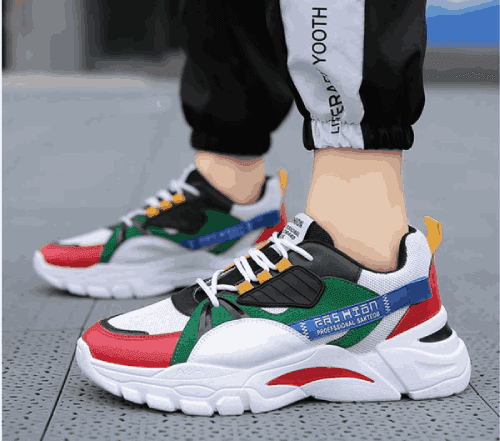 |
|
Loafers /ˈloʊfarz/ (n) |
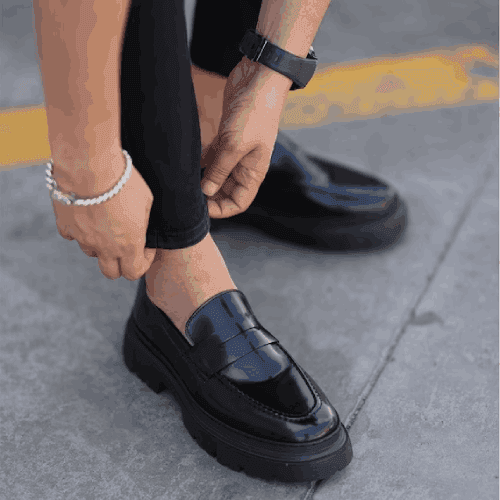 |
|
Oxfords /ˈɒksfərdz/ (n) |
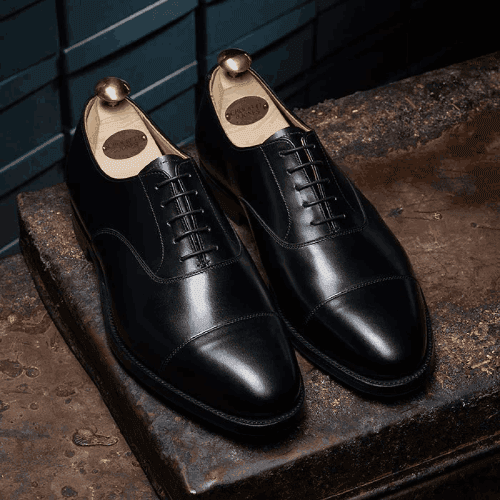 |
|
Brogues /broʊɡz/ (n) |
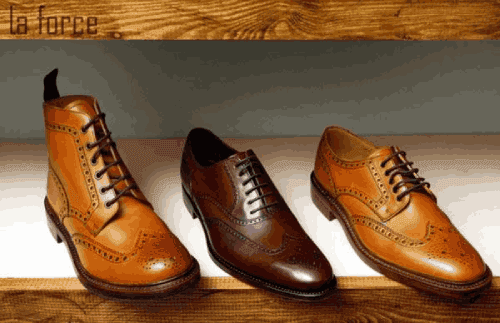 |
|
Derby /ˈderbi/ (n) |
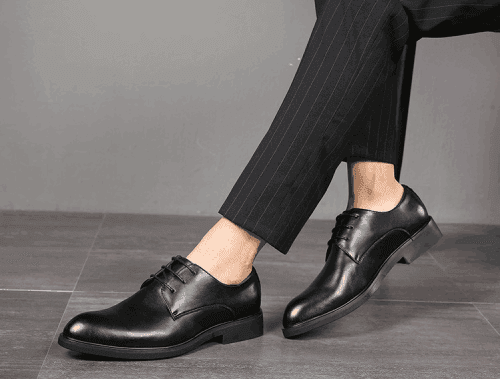 |
|
Monk straps /mʌŋk stræps/ (n) |
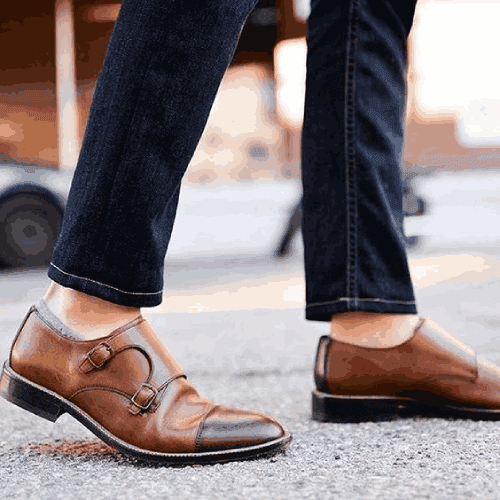 |
|
Chelsea boots /ˈtʃelsi buːts/ (n) |
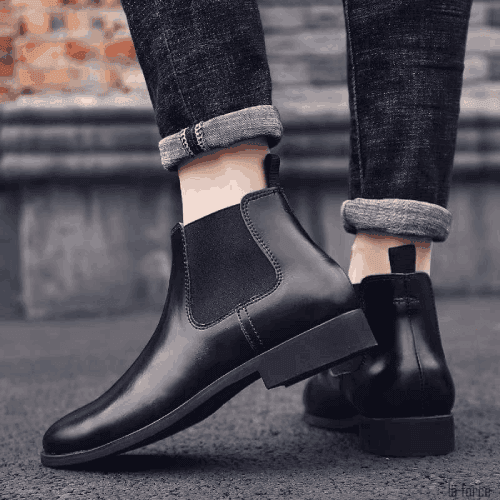 |
|
Chukka boots /ˈtʃʌkə buːts/ (n) |
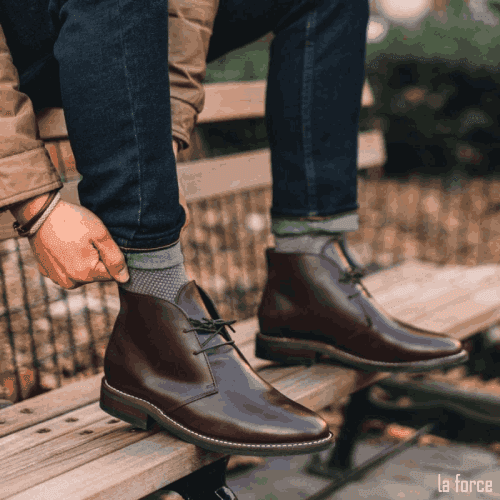 |
|
Moccasins /ˈmɒkəsɪnz/ (n) |
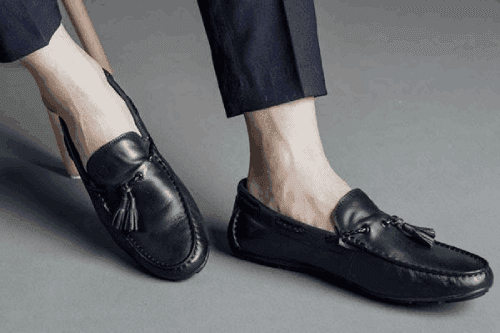 |
|
Espadrilles /ˌespəˈdrɪlz/ (n) |
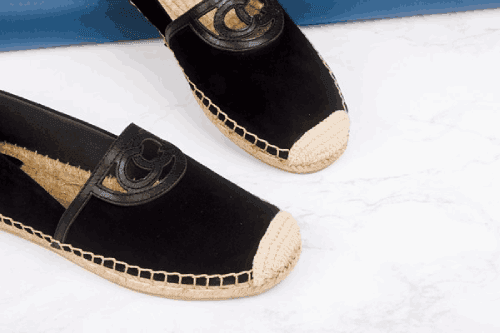 |
|
Sandals /ˈsændlz/ (n) |
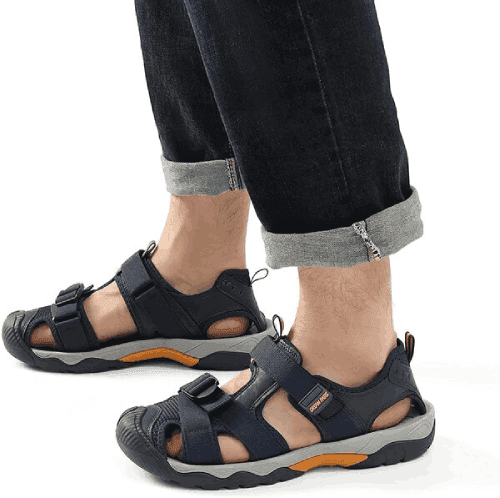 |
|
Flip-flops /ˈflɪpˌflɒps/ (n) |
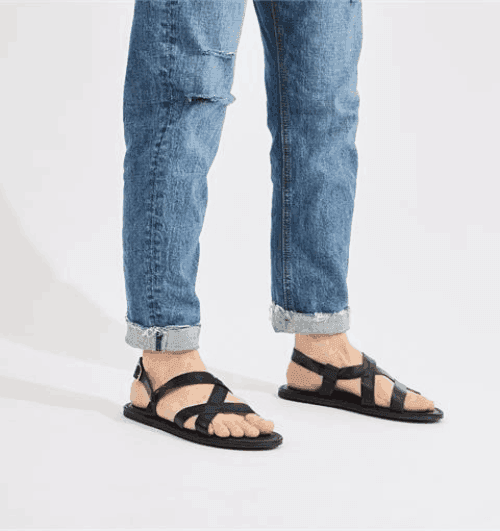 |
|
Boat shoes/ top-siders/ deck shoes /boʊt ʃuz/ (n) |
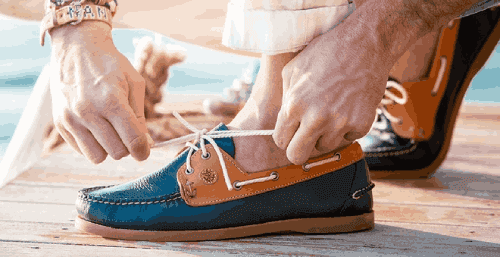 |
|
Wingtips/ Full Brogues /ˈwɪŋˌtɪps/ (n) |
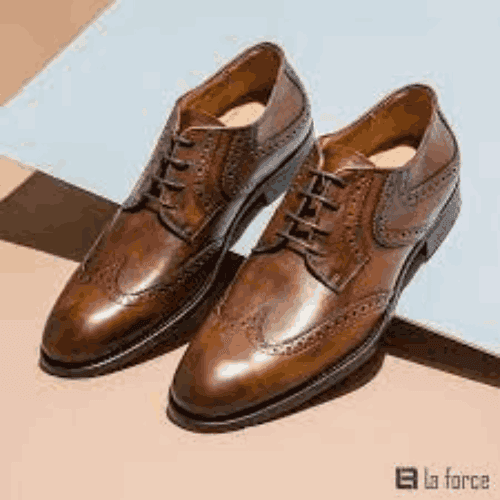 |
|
Ankle boots /ˈæŋkl buːts/ (n) |
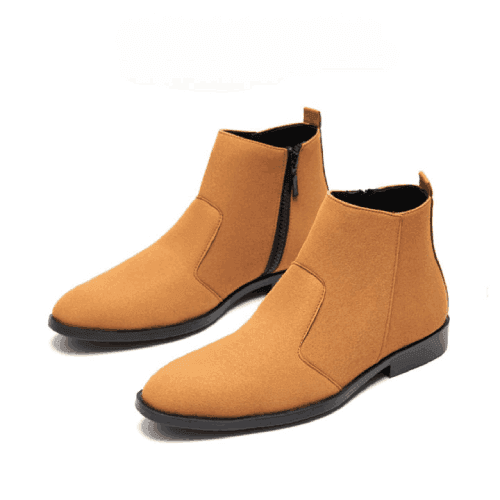 |
|
Slip-ons /slɪp ɒnz/ (n) |
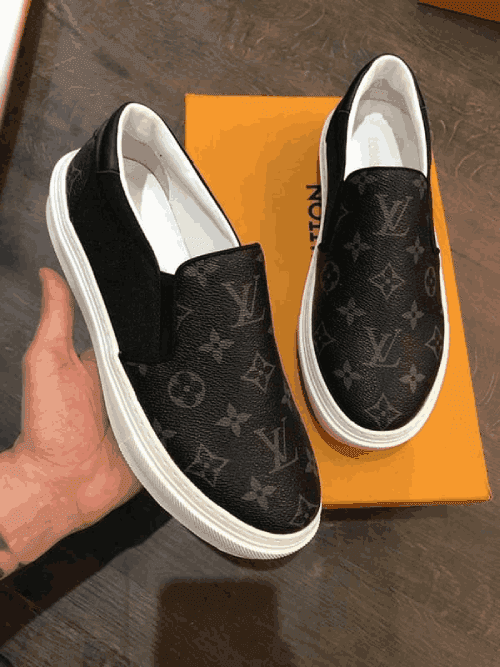 |
2. Women's shoes
Women’s shoes come in a vast variety of styles, often designed with both fashion and function in mind. Understanding the vocabulary for different types of women’s footwear enables learners to speak confidently about shopping preferences, describe outfits, or respond naturally in English tests like IELTS.
|
Shoes vocabulary |
Illustration |
|
Ankle booties/ ankle boots /ˈæŋkl ˈbʊtiz/ (n) |
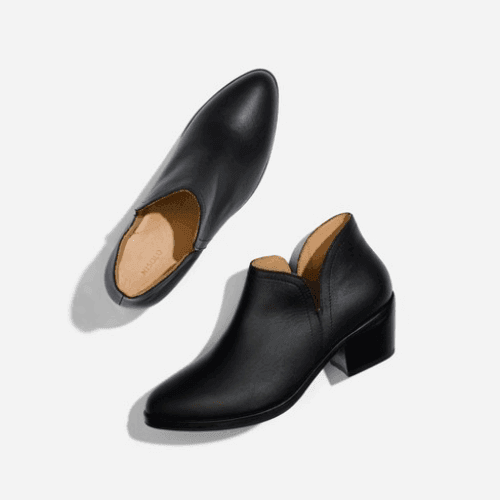 |
|
Ballet flats /ˈbæleɪ flæts/ (n) |
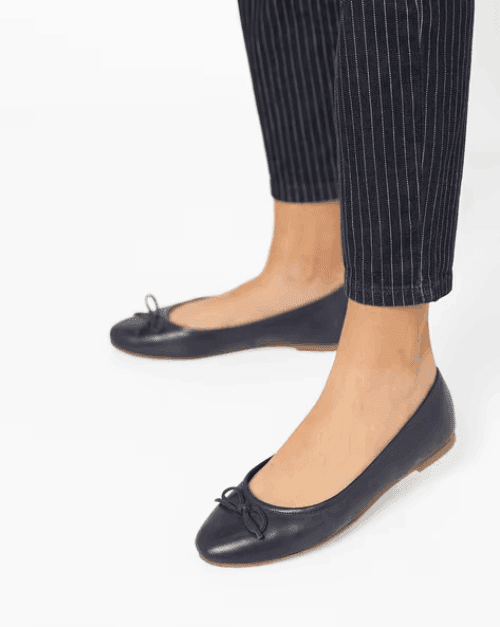 |
|
Block heels /blɒk hiːlz/ (n) |
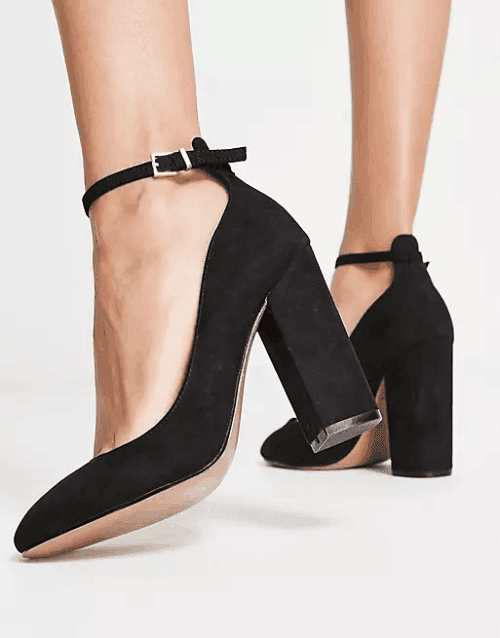 |
|
Comma heels /ˈkɒmə hiːlz/ (n) |
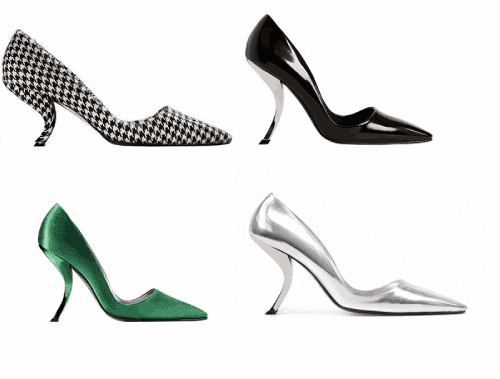 |
|
Cone heels /koʊn hiːlz/ (n) |
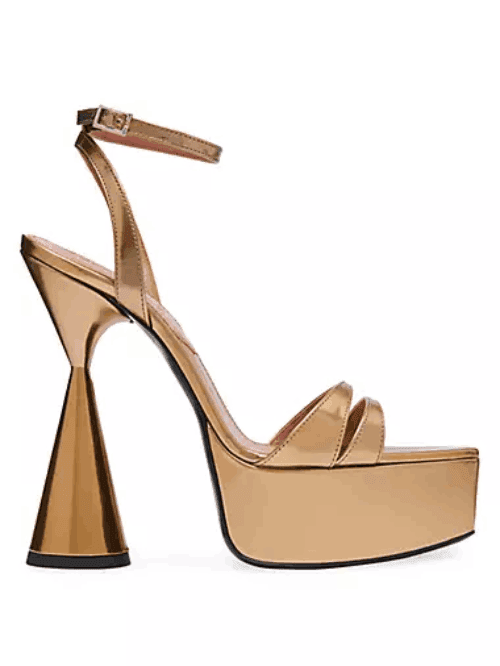 |
|
Cork high heels /kɔrk haɪ hiːlz/ (n) |
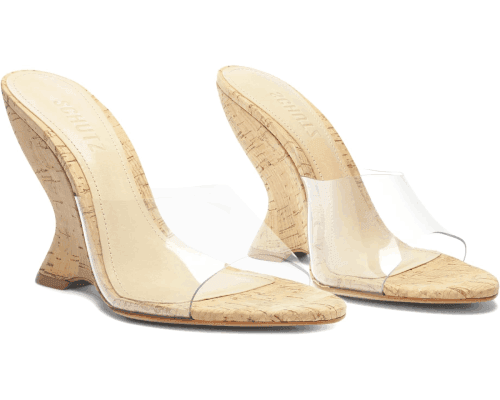 |
|
Corset heels /ˈkɔrsɪt hiːlz/ (n) |
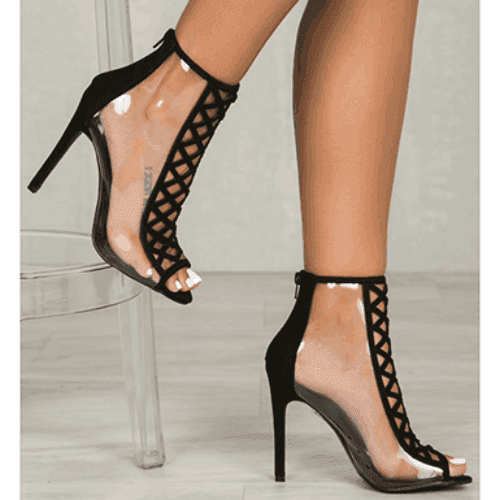 |
|
Cuban heels /ˈkjuːbən hiːlz/ (n) |
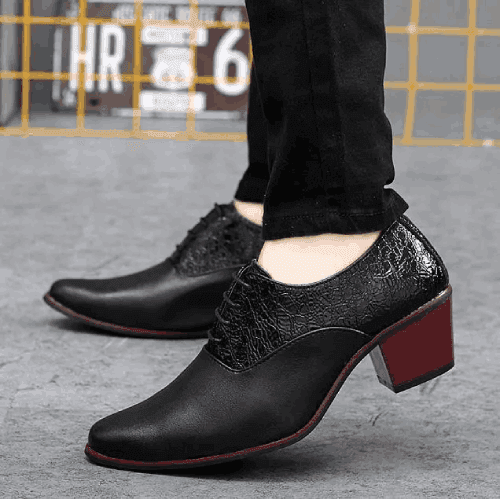 |
|
Decorative heels /ˈdɛkərətɪv hiːlz/ (n) |
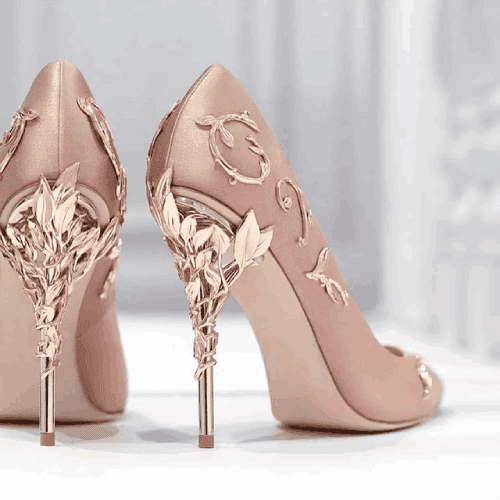 |
|
Flare heels /flɛər hiːlz/ (n) |
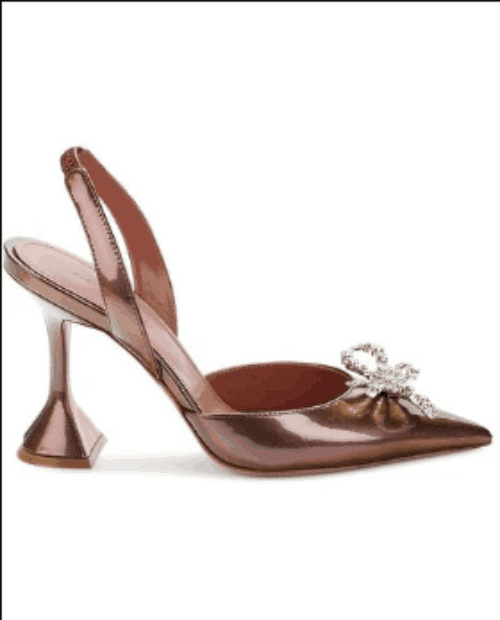 |
|
French heels /frɛntʃ hiːlz/ (n) |
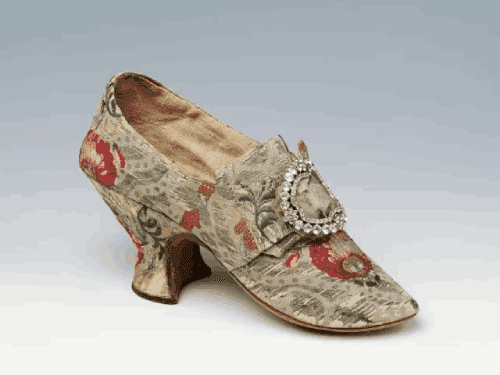 |
|
High-heeled boots /haɪ hiːld buːts/ (n) |
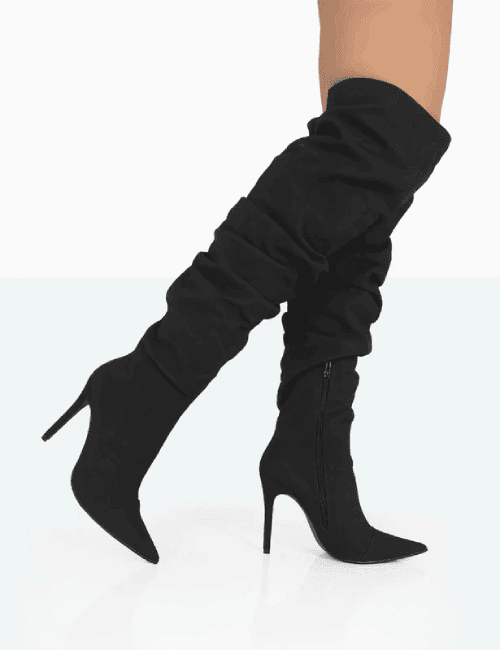 |
|
Kitten heels /ˈkɪtən hiːlz/ (n) |
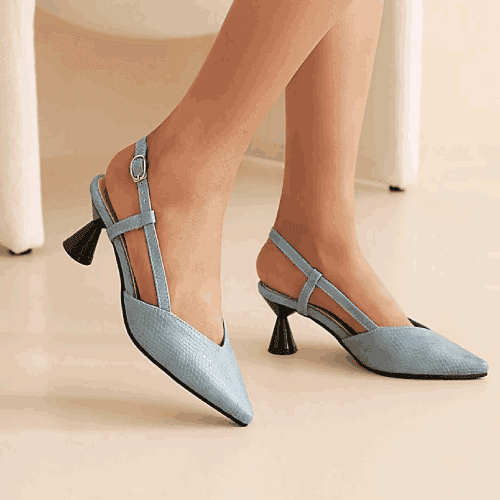 |
|
Peep-toe heels /piːp-toʊ hiːlz/ (n) |
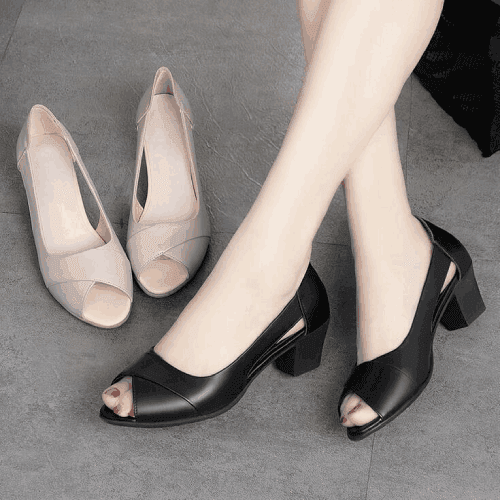 |
|
Platform heels /ˈplæt.fɔːrm hiːlz/ (n) |
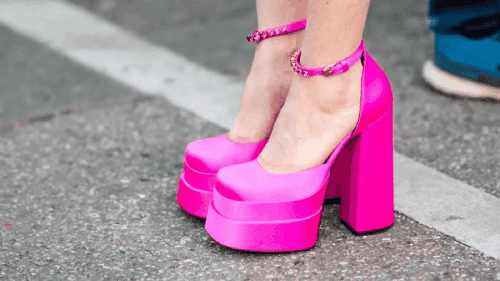 |
|
Pumps /pʌmps/ (n) |
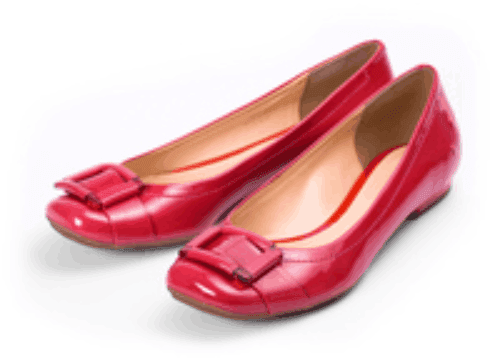 |
|
Spool heels /spuːl hiːlz/ (n) |
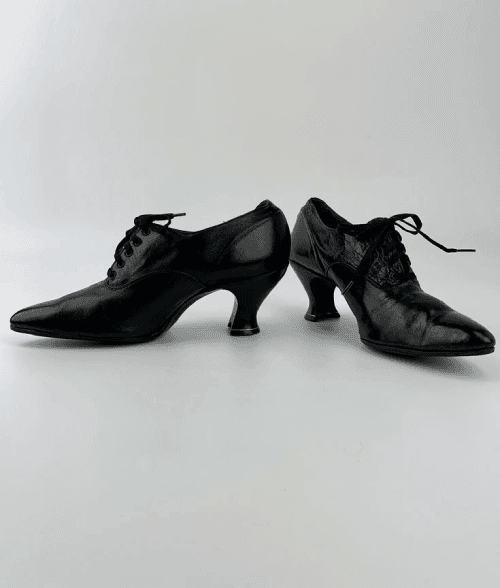 |
|
Square heels /skwɛər hiːlz/ (n) |
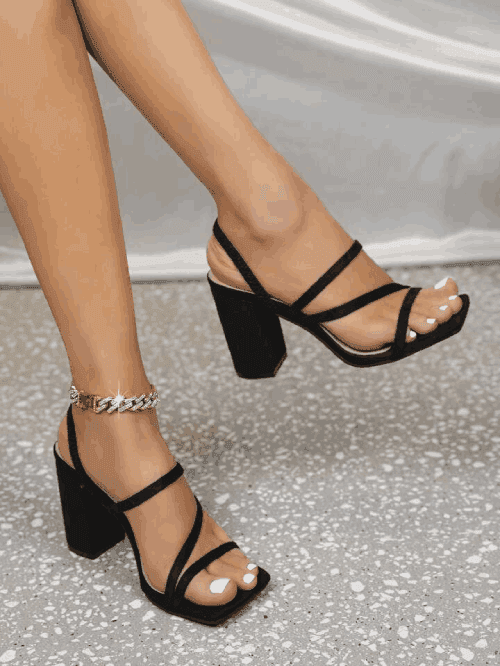 |
|
Stilettos /stɪˈlɛtoʊz/ (n) |
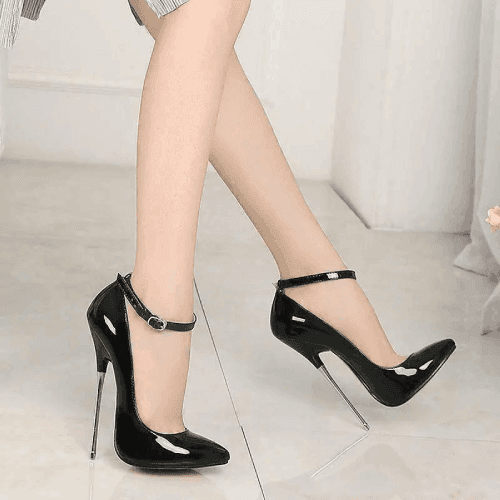 |
|
Wedges /wɛdʒɪz/ (n) |
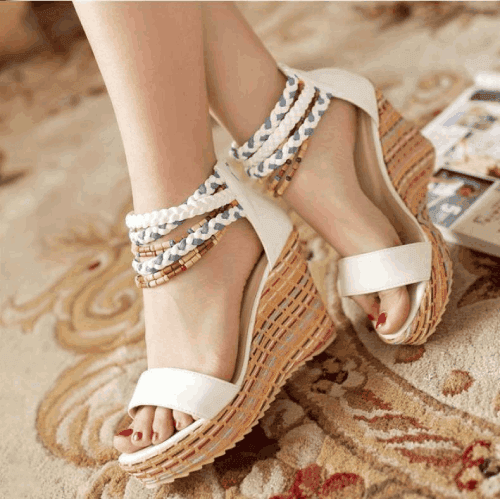 |
3. Specialized shoes
Specialized shoes are designed for specific activities, environments, or professional needs. Unlike everyday footwear, these shoes focus more on functionality, safety, or performance — making them essential vocabulary for English learners preparing for real-world situations, workplace conversations, or IELTS topics related to jobs and lifestyles.
|
Shoes vocabulary |
Illustration |
|
Work boots /wɜːk buːts/ (n) |
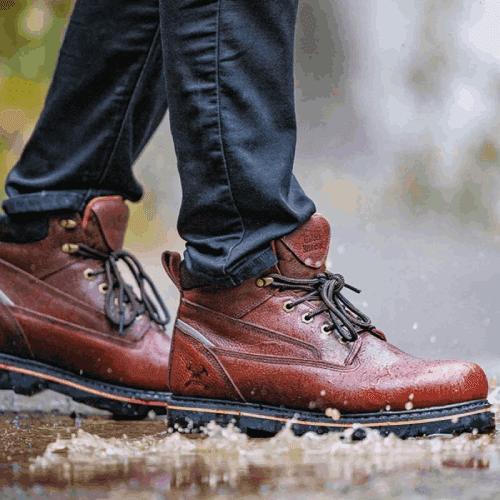 |
|
Hiking boots /ˈhaɪkɪŋ buːts/ (n) |
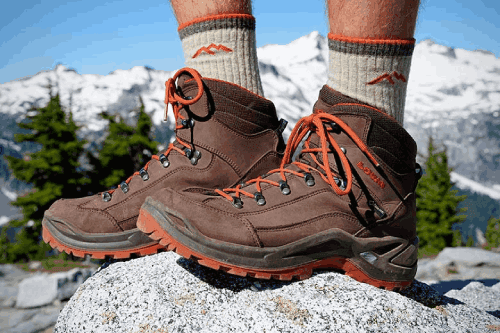 |
|
Formal shoes /ˈfɔːrml ʃuz/ (n) |
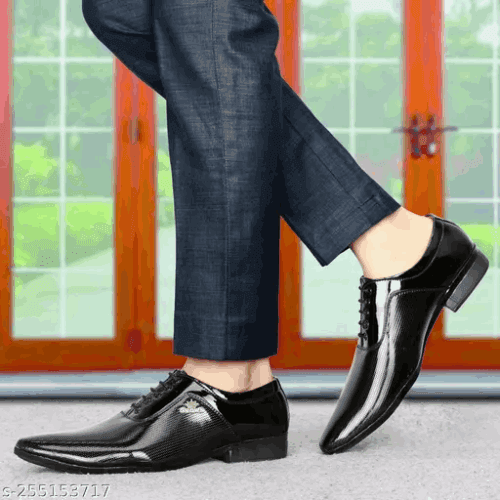 |
|
Safety boots /ˈseɪfti bʊts/ (n) |
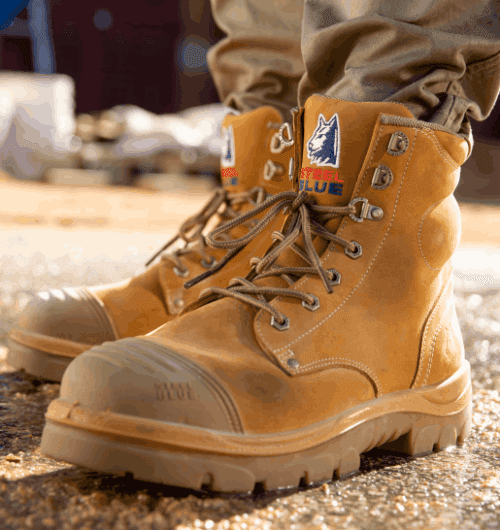 |
|
ESD shoes /iːɛsˈdiː ʃuz/ (n) |
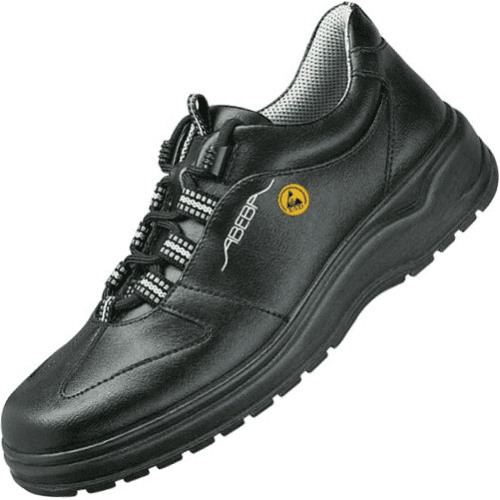 |
|
Chef shoes /ʃɛf ʃuz/ (n) |
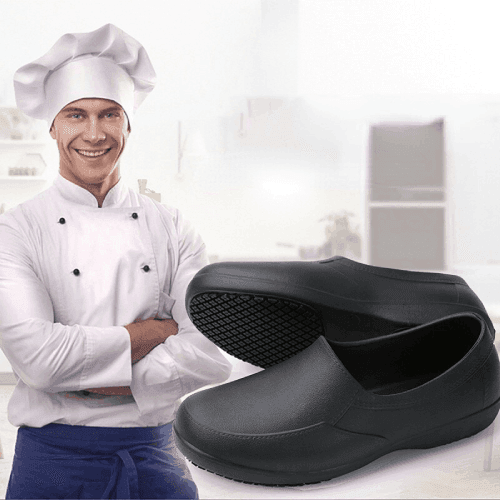 |
|
Medical shoes /ˈmɛdɪkl ʃuz/ (n) |
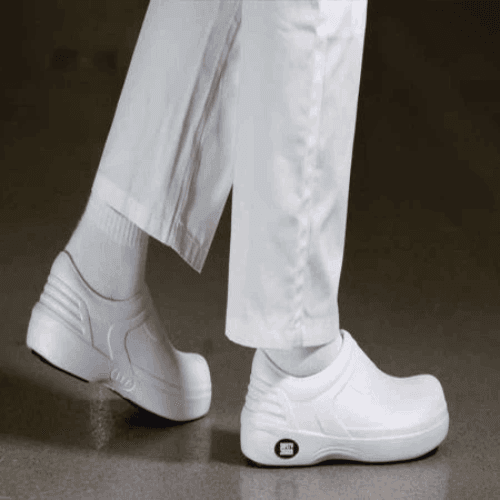 |
|
Chemical resistant shoes /ˈkɛmɪkl rɪˈzɪstənt ʃuz/ (n) |
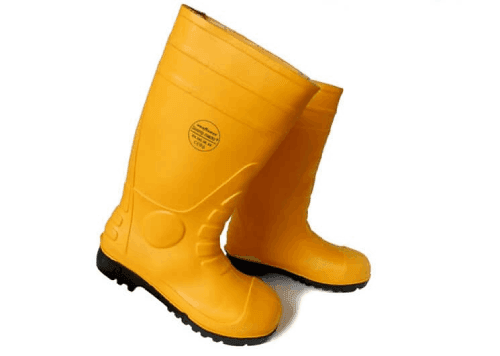 |
|
Waterproof shoes /ˈwɔtərpruːf ʃuz/ (n) |
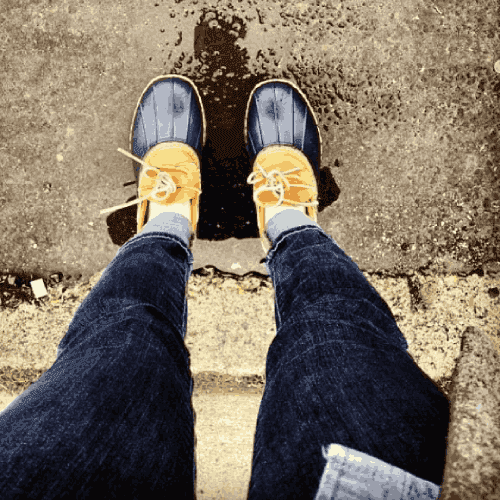 |
|
Heat resistant shoes /hiːt rɪˈzɪstənt ʃuz/ (n) |
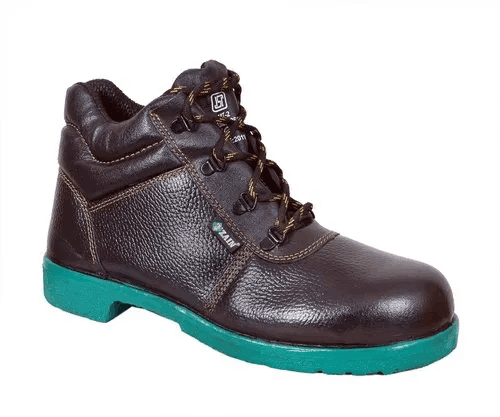 |
|
Fire resistant shoes /faɪər rɪˈzɪstənt ʃuz/ (n) |
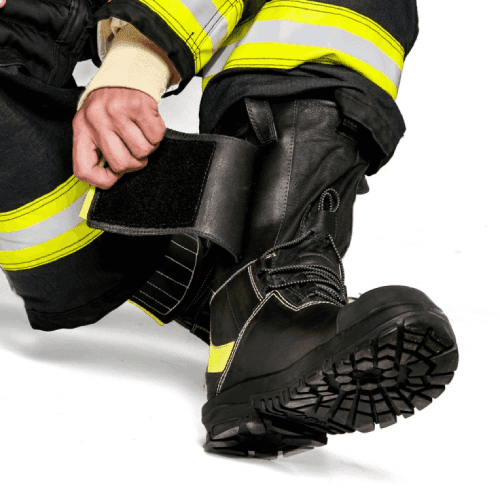 |
|
Cold resistant shoes /koʊld rɪˈzɪstənt ʃuz/ (n) |
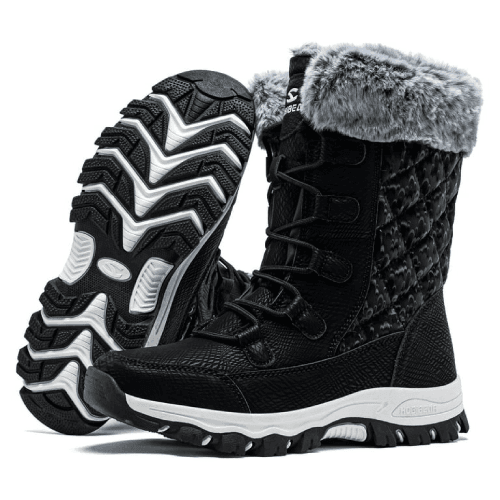 |
III. Vocabulary for Parts of a Shoe
Understanding the parts of a shoe is essential not only for shopping or describing shoes precisely, but also for expanding your English vocabulary in fashion, retail, or product design contexts. In this section, we’ll explore the basic components of a shoe, along with relevant vocabulary, meanings, and illustration suggestions to support visual learners.

Shoe Component Vocabulary Table
|
Shoes vocabulary |
Meaning |
Illustration |
|
Upper /ˈʌpər/ (n) |
the top part of a shoe that covers a person's foot and to which the heel and the sole are attached |
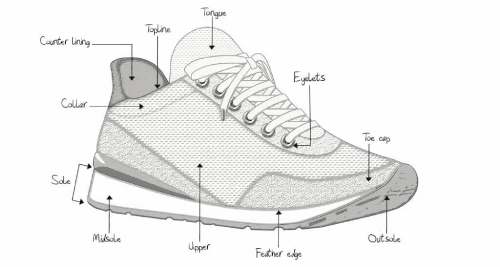 |
|
Sole /soʊl/ (n) |
the bottom part of the foot that touches the ground when you stand or walk, or the bottom part of a shoe that touches the ground, usually not including the heel |
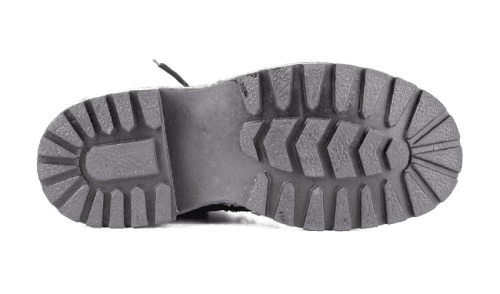 |
|
Insole /ˈɪn.soʊl/ (n) |
a piece of material inside a shoe on which your foot rests, or a piece of material that you put in a shoe to make it warmer or more comfortable |
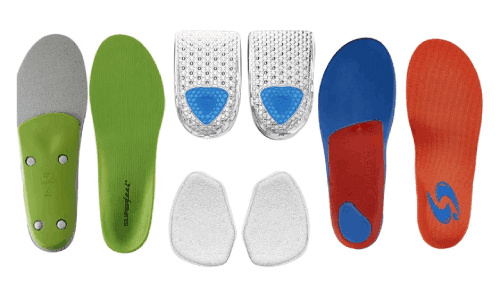 |
|
Heel /hil/ (n) |
the part of the bottom of a shoe that lifts the back of the foot higher than the front |
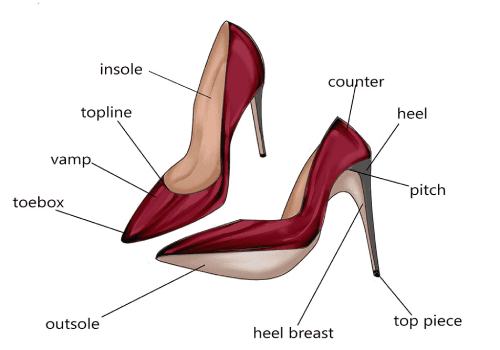 |
|
Toe /toʊ/ (n) |
the part of a sock, shoe, or other foot covering that goes over the toes |
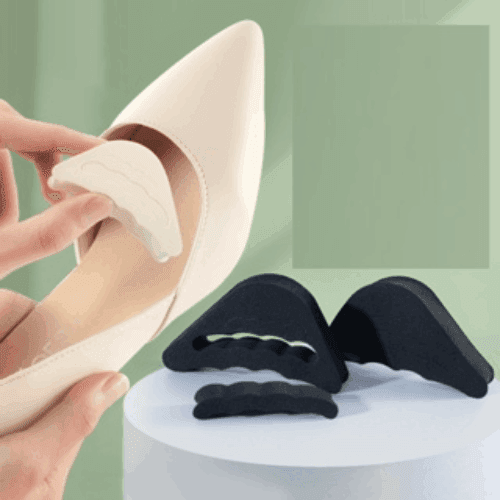 |
|
Vamp /væmp/ (n) |
the front part of the top of a shoe |
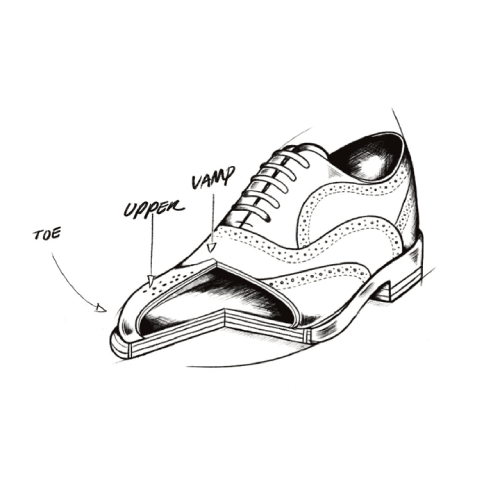 |
|
Quarter /ˈkwɔrtər/ (n) |
the part of the shoe that covers the sides and back of the foot behind the vamp |
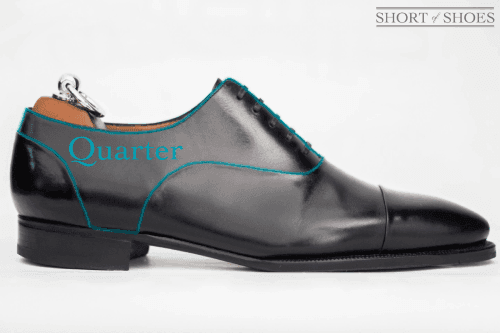 |
|
Eyelets /ˈaɪ.ləts/ (n) |
a small hole in the material, the edge of which is protected by a ring of metal, through which a piece of string, a shoelace, etc. is put to fasten something |
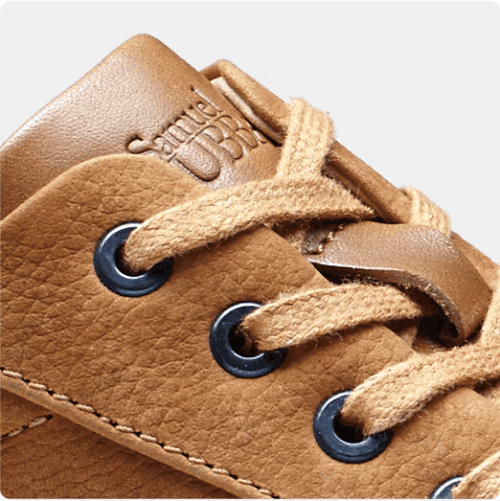 |
|
Tongue /tʌŋ/ (n) |
a part of an object that is tongue-shaped, especially the piece of material that is under the laces in a shoe |
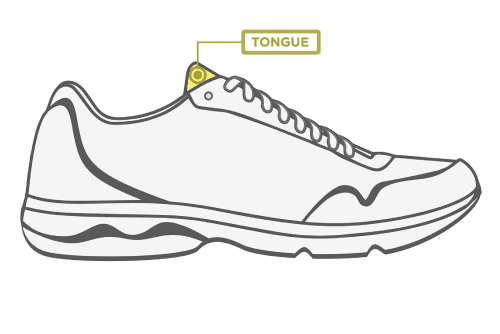 |
|
Collar /ˈkɒlər/ (n) |
The top edge of the quarter, where you insert your foot, is often padded for extra comfort. |
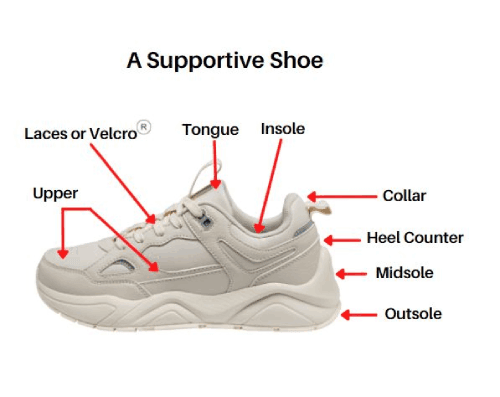 |
|
Lining /ˈlaɪnɪŋ/ (n) |
surrounds the foot, to keep the foot feeling cozy and dry, while also helping to maintain the right humidity level inside the footwear |
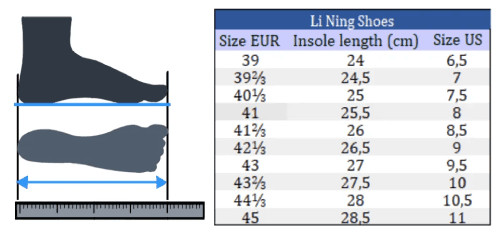 |
|
Pull tab /pʊl tæb/ (n) |
the small loop attached to the back part of a boot’s opening over the heel area, to make it easier for the boot to be pulled on or off without pulling on the entire collar. |
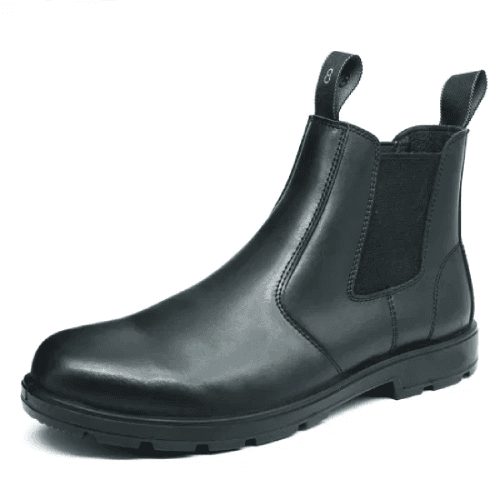 |
|
Saddle /ˈsædəl/ (n) |
the part in the middle, between the vamp and the quarter. |
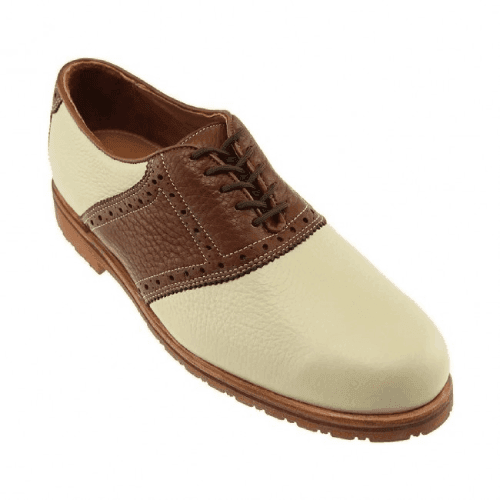 |
|
Outsole /ˈaʊt.soʊl/ (n) |
the piece of hard material on the bottom of the shoe |
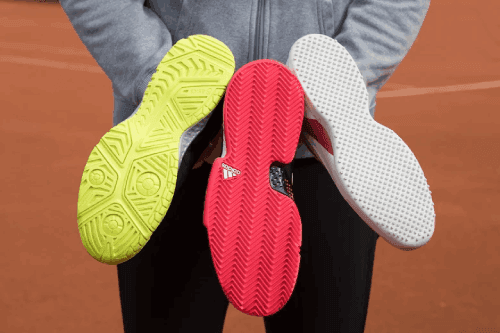 |
|
Midsole /ˈmɪd.soʊl/ (n) |
the material layer under the insole but over the outsole |
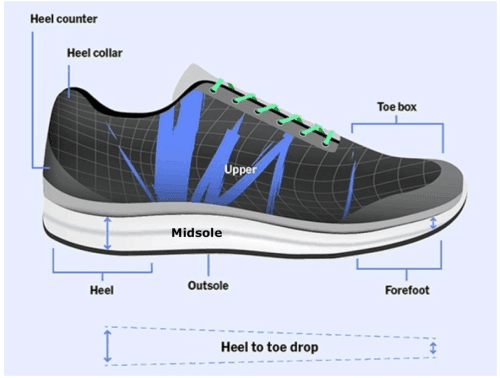 |
Materials and Functional Features
|
Vocabulary |
Meaning |
|
Leather |
Durable, flexible animal hide used in formal shoes. |
|
Mesh |
Breathable fabric for sports shoes. |
|
Rubber sole |
Provides grip and flexibility. |
|
Waterproof |
Designed to resist water; common in boots. |
|
Shock-absorbing midsole |
Absorbs impact while walking or running. |
|
Slip-on |
Shoes that don’t need laces, easy to wear. |
IV. Common Phrases and Idioms about Shoes
In English, shoes are more than just something we wear—they're also part of many everyday phrases and idioms. Knowing these expressions not only makes your English sound more natural and fluent but also helps improve your performance in speaking tests like IELTS or TOEIC.
Everyday English Phrases with "Shoes"
|
Expression |
Meaning |
Example |
|
Put yourself in someone’s shoes |
Imagine being in someone else’s situation |
Try to put yourself in her shoes—she’s under a lot of stress. |
|
If the shoe fits, wear it |
If something applies to you, accept it (even if it’s unflattering) |
I never said it was you, but if the shoe fits... |
|
Big shoes to fill |
A position that will be hard to live up to after a great predecessor |
He’s taking over as CEO—those are big shoes to fill. |
|
Waiting for the other shoe to drop |
Expecting something bad to happen after a previous event |
After the first layoff, we were all waiting for the other shoe to drop. |
|
Back on your feet (related phrase) |
Recover from a setback or difficult situation |
After a rough year, she's finally back on her feet. |
Adjective + Shoe Combinations & Collocations
|
Adjective |
Example phrase |
Context |
|
Comfortable |
comfortable walking shoes |
Travel, daily use |
|
Stylish |
stylish leather boots |
Fashion, shopping descriptions |
|
Worn-out |
worn-out sneakers |
Casual speech, describe old shoes |
|
Designer |
designer high heels |
High-end fashion conversations |
|
Lace-up |
lace-up dress shoes |
Product descriptions |
|
Slip-on |
slip-on loafers |
Ease-of-use, casual wear |
V. Crack the IELTS Exam With Confidence
PREP hopes that the article above has helped you expand your English shoes vocabulary so that you can use it daily. Preparing for IELTS can feel daunting, but it doesn’t have to be. Learn from experienced tutors who will guide you every step of the way:
-
IELTS course: Break Barriers, Achieve Band 7+

Hi I'm Chloe, and I am currently serving as an Product Content Administrator at Prep Education. With over five years of experience in independent online IELTS study and exam preparation, I am confident in my ability to support learners in achieving their highest possible scores.
Comment
Premium content
View allPersonalized roadmap
Most read












